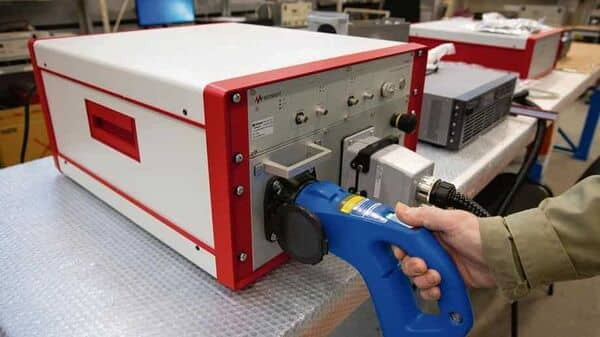EV Sector Seeks Time To Execute Rules

"storyDirectUrl"
 Premium
Premium- Industry is confident that new standards can be easily met, but feels one month is too little time to implement them
NEW DELHI : The electric vehicle industry, including battery pack manufacturers, has urged the government to extend the deadline for implementing additional safety standards mandated by a new set of automotive industry rules, industry executives said. The government had notified the new rules on 1 September, and set a 1 October deadline for companies to switch over their entire manufacturing set-up, sourcing and certifications to the far stricter set of regulations.
Though the industry is confident the norms can be easily met and set a high benchmark for developing the nascent EV industry, manufacturers said additional design and process-related requirements will take a certain level of supply chain readiness, which cannot be achieved within a month, and rushing into it is likely to be counter-productive. Redesigning battery packs and lack of clarity on certain testing processes could lead to shoddy implementation, they added.
The amendments include stricter cell-level safety checks, ingress protection or better insulation, adequate spacing of the individual cells inside a battery pack, propagation test to ensure a thermal runaway in one cell does not spread to other cells, temperature sensors that can send audio-visual warnings to prevent thermal incidents, as well as smarter battery management systems (BMS) and chargers.
The rules have been designed with a sharp focus on preventing any casualties or harm to “bystanders" in the event of an EV fire. Furthermore, specific rules around the testing of individual cells can make the manufacturing process significantly more time-consuming, and, therefore, costlier.
A delegation of original equipment manufacturers and battery makers has sought to defer the implementation of the new rules till March 2023 during a meeting with Union minister for road transport and highways Nitin Gadkari on Tuesday. The government is expected to take a decision on extending the deadline within a day or two.
“The new EV battery standards will build customers’ confidence in electric vehicle technologies and contribute to rapid electrification. However, the changes proposed under the new amendment to AIS 156 (by way of Rev 2) are extensive and wide in scope. Achieving these changes will require redesigning, re-engineering, revalidation and re-homologation of battery packs. Further, battery makers will have to design and procure tools and new capital equipment, which will require a minimum of six months. Electric vehicles using new batteries will also be required to undergo testing, validation and redesign. Certain amendments proposed also require clarifications and modifications as well as detailed process definition," said Sulajja Firodia Motwani, founder and chief executive of Kinetic Green, and chairperson of Ficci’s EV committee. The industry has requested the ministry for adequate time to hold stakeholder consultations and to comply with the finalized standards, she added.
“It takes close to a year to design, develop, validate and productionize a new battery. Trying to speed that up can only create further issues," said Arun Vinayak, co-founder and chief executive officer, Exponent Energy.
“The government’s intent to emphasize cell quality and get manufacturers to check every cell is correct, but there are better ways to do it. Today, if we characterize your cell within an hour, with the new rules, it could go up to 35 hours and we’d need a farm of cyclers.
So, there’s the space requirement and the cost of cycling equipment. All that gets factored into the cost of manufacturing. Design regulations don’t add a lot of cost, it’s more about R&D, but the process changes are bringing in a lot more cost inefficiencies for manufacturing batteries," he added.
Government agencies may also not be equipped in terms of capacity or testing equipment just yet, said experts. “Once battery makers have made the batteries, it will take many months to test each new battery... There are hundreds of electric two- and three-wheeler manufacturers, but only three-four government agencies conduct these tests. Moreover, manufacturers have existing stock which can be reassembled, but the process takes time. It is nearly impossible to do it in a month," said Nitin Kapoor, managing director, Saera Electric Auto.
Catch all the
Corporate newsand Updates on Live Mint. Download The
Mint News Appto get Daily
Market UpdatesBusiness News.
The Self-Destructive Nature Of Anti-Tourism Protests: Balancing Resident Concerns With Tourism Benefits
In recent years, anti-tourism protests have become increasingly common across popular tourist destinations. From the Bal... Read more
Military And Strategic Implications Of The Ukrainian Drone Attack In Kursk
On a recent morning, the Kursk region in south-western Russia witnessed an unexpected and significant event: a Ukrainian... Read more
Chinese Tech Stocks Gain Ground Despite Wall Street Technology Sell-Off
Chinese tech shares in Hong Kong gained on Friday, defying a technology stock sell-off on Wall Street, driven by strong ... Read more
Defense Pact Between Britain And Germany: A Focus On Cybersecurity And Joint Operations
In a move set to redefine European defense collaboration, Britain and Germany have signed a comprehensive defense pact a... Read more
US Secret Service Director Steps Down After Trump Assassination Attempt
Security lapses admitted by Kimberly Cheatle prompt resignation.Kimberly Cheatle, the head of the US Secret Service, has... Read more
Kamala Harris Promises A Brighter Future In Official Campaign Launch
In a vibrant and impassioned campaign launch, Vice President Kamala Harris vowed to lead America toward a "brighter futu... Read more

